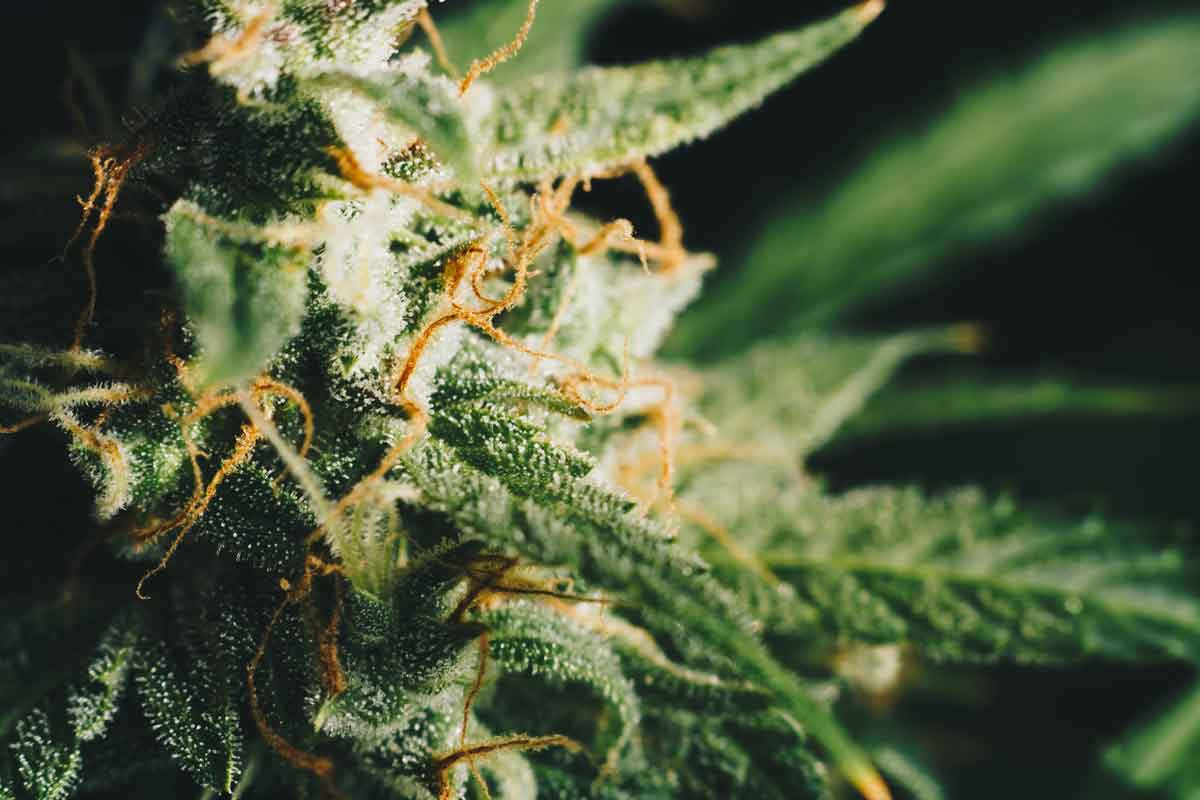Many people are familiar with the cannabinoid THC, but did you know that it comes from the raw acid compound THCa? In this article I will clarify how THCa is converted into THC and list the many benefits of THCa and THC. I will also explain how the percentages of THCa and THC that appear on your cannabis product labels are derived.
THC vs THCa
THCa or Tetrahydrocannabinolic acid is the non-psychotropic cannabinoid found in raw and live cannabis. THC or delta-9-tetrahydrocannabinol is the active, psychotropic cannabinoid. They share a very similar chemical composition. The difference between the two cannabinoids is the addition of a carboxyl group in THCa.
THCa does not bind well with either CB1 or CB2 receptors in our endocannabinoid system. It is not psychotropic due to its 3-dimensional shape and larger size which prevents it from fitting into CB1 receptors. It is also thought that THCa, together with some of the other acid forms of cannabinoids, may act to inhibit COX-1 and COX-2 enzymes, resulting in the potential to reduce pain and inflammation. Both these enzymes produce prostaglandins which promote inflammation, pain and fever.
When the raw form THCa is heated, it is converted into THC through the process of decarboxylation. There are many ways for that to happen that include:
- Sunlight Exposure
- Room Temperature Exposure
- Heat Exposure through smoking, vaping, concentrates and oven decarboxylation
Potential Benefits of THCa
- Anti-inflammatory properties to treat arthritis, lupus and fibromyalgia, to name just a few
- Neuroprotective properties to treat neurodegenerative diseases such as Alzheimer’s Disease, Parkinson’s Disease and ALS
- Anti-emetic properties to treat appetite loss, vomiting and nausea
- Anti-proliferative properties to treat cancers, especially prostate cancer
- Anti-spasmodic to stop muscle spasms
- Sleep aid
- Analgesic to relieve pain
- Appetite stimulant
- Antioxidant which counteracts the harmful effects of free radicals
Potential Benefits of THC
In addition to all the potential benefits of THCa listed above, additional potential benefits of THC include the following:
- Addiction Treatment Option by reducing the motivation of ingesting reward-based substances like opioids, heroin and alcohol. It increases the likelihood of opioid treatment program completion.
- Metabolic Output Increase which may lower Body Max Index (BMI), decrease rates of diabetes and prevent diet-related obesity.
- Vasodilation which may reduce pain and eye pressure related to glaucoma
- Anxiolytic by increasing the amount of anandamide, the natural brain neurotransmitter, that controls anxiety and several other functions of the body.
While THC is available in every delivery method of cannabis, THCa is available in topicals, tinctures, capsules and raw cannabis juice.
Raw Cannabis
Raw cannabis works much differently than cannabis which is decarboxylated. The cannabinoid acids are stored in the body fat known as adipose tissue. It takes approximately 4-8 weeks for full saturation. Once the fat has completely absorbed all the cannabinoid acids, the full medicinal effects are felt. By juicing leaves and buds, patients can increase their daily intake of cannabinoids since their is no psychoactivity involved.
Research Studies with THCa
While THC has been the subject of many clinical human trials, less research has been devoted to THCa.
A June 2012 preclinical study published in Phytomedicine illustrated the potential for THCa to help protect the brain from the onset of neurodegenerative diseases.
A 2013 study using animal models and cell cultures demonstrated that THCa may prevent the spread of prostate cancer cells.
A July 2017 study conducted by the Institute of Plant Sciences, Department of Gastroenterology and Hepatology and the Sackler Faculty of Medicine, Israel, concluded that THCa may possess stronger anti-inflammatory properties than CBD when treating IBD, Crohn’s Disease and Ulcerative Colitis.
Lab Testing Methods
Are you confused by the product labels for THC and THCa on your medical cannabis products? I will do my best to clarify how the percentages of THCa and THC were derived.
I am sure you are aware that medical cannabis products must go through rigorous testing for many reasons. One of them is to determine the potency of the different cannabinoids in your products.
There are 2 common processes for testing the potency:
1. Gas chromatography (GC) in which extracted cannabinoids are converted to a gaseous mixture at high temperatures. They are run through a filter of sorts that measures the different cannabinoid levels.
The drawbacks in using GC are several fold:
- The introduction of heat causes some of the THCa to decarboxylate.
- The final test results may underestimate the actual THC potency
- Only the THC level is available, not that of THCa
- Useless for edibles because it is imperative to know the difference between orally active THCa and active THC.
- Only 70% of THCa is converted to THC
- Allows the testing of THCa and THC without any loss that occurs during decarboxylation
- Gives separate values for both THCa and THC
2. Liquid chromatography (LC) occurs at room temperature and is a better testing method.
Have ever wondered how labs are able to determine the potency of THCa and THC in your strains? Since it is impossible to know exactly how much THCa converts to THC in any given strain, a universal mathematical formula has been devised for this purpose.
THCtotal = (%THCa) x 0.877 + (%THC)
Let’s use the following example to illustrate this. The label lists THCa 22% and THC 3%
THCtotal = 22% x 0.877 + 3% = 22.3%
I hope this gives you more of an understanding of how the percentages of THCa and THC that appear on the product labels were determined.
Sources:
weedmaps.com, THCa and THC: What’s the Difference?
hightimes.com, THCa vs THC: How to Read a Lab Result, Sirius J, July 20, 2015
apothecarium.com Cannabinoids 101: THCa – The Apothecarium
marijuanadoctors.com, Tetrahydrocannabinol: What is THC? Dr. Joseph Rosado, updated Dec 28, 2018
thegrowthop.com, Is Raw Cannabis Beneficial To Health, Marco Medic, May 2, 2019

